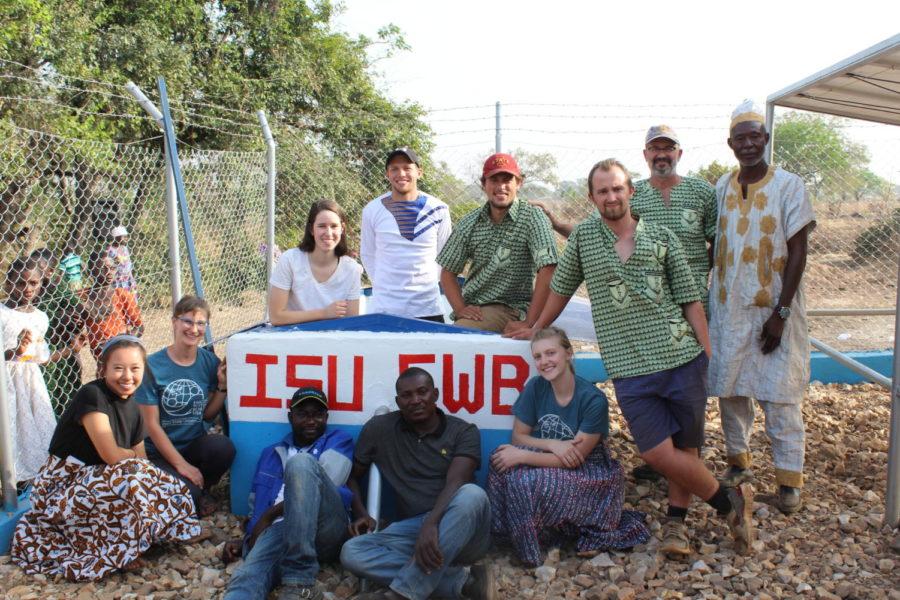Student organization implements skills to help Ghanian community
Courtesy of Engineers Without Borders
Engineers Without Borders is a student organization that travels to Ghana every Winter Break to implement the designs they create throughout the school year to help the Ghanaian community.
September 23, 2019
One Iowa State student organization is going far beyond fundraising for their projects, even going so far as to leave the country for them.
Engineers Without Borders is a non-profit humanitarian organization established to partner with developing communities worldwide in order to improve their quality of life. They have been active at Iowa State for eight years.
Engineers Without Borders focuses on the implementation of sustainable engineering projects while involving and training internationally responsible engineers and engineering students.
“Our driving force is that we just want to take our skills and the education we are given here and just want to apply it to real-world projects,” said Christian Larounis, senior in industrial engineering. “We just want to help people in struggling communities and give them a better life.”
The activities Engineers Without Borders do range from the construction of sustainable systems that developing communities can own and operate without assistance to empowering those communities by enhancing local technical skills.
“We get paired with a community through the overarching Engineers Without Borders program,” Larounis said. “They find a community for us and then pair us together. What is interesting about our club, usually after you finish a project you can move on to a new community, but we have created such a strong bond that we have decided to stay and work on more projects with them.”
The Iowa State Engineers Without Borders website said the chapter is focused on long-term partnerships with communities and ensuring the projects they design are simple and sustainable that the community can independently maintain.
“Our club is working with a community in Ghana named Ullo,” Larounis said. “We are working on different implementation projects like a water system, we are working on a clinic for them and just some other projects that will help give them a better life there.”
Every winter break, the student organization takes around 47 students to Ullo as a team with the goal of implementing the project they planned that school year.
Ullo is a small village of about 1,100 people in Northwest Ghana. Almost all villagers practice subsistence farming as a necessity since the area has a daily income of about $0.75 per person.
Almost 1,500 students come to Ullo to attend the local high school as residents. Even though the school has the capacity to serve the students, it is limited on water availability to feed the students. The students often struggle to find and prepare food for their own daily routine. Women and children wait over three hours for water and there are few sanitary, functional pit latrines available for use.
Engineers Without Borders has a goal to implement a water distribution system by drilling a borehole into the community’s closest aquifer to feed water to a distribution tank to supply access points in the school and around Ullo. This will give students a nearby source of water that will cut down the amount of time and labor put into retrieving water during school hours, giving them more time to spend on learning. The additional water availability to the students will allow the school to more appropriately accommodate the large demand for education in the Upper West Region of Ghana.
To do all the projects, Engineers Without Borders has to raise a hefty sum of money every year to pay for contractors, materials and travel costs for the Ghana projects. The majority of this money is provided by fundraising through companies and alumni as well as grants the student organization receives.
“One of our fundraising that is new is Breakfast Without Borders,” Larounis said. “We’re selling donuts and coffee in the morning; we are just trying to raise as much as possible so we can do the project.”
Current Breakfast Without Borders dates are Monday, Oct. 7, Oct. 14, Oct. 21, Oct. 28, Nov. 4, Nov. 11 and Nov. 18. The events are 8:30 a.m. to 10:30 a.m. in the main lobby of Carver Hall.
To donate to Engineers Without Borders go to http://www.ewb.stuorg.iastate.edu/donate/.
















